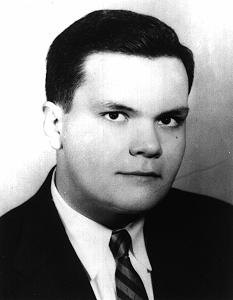A Quote by Anne Lamott
You can either set brick as a laborer or as an artist. You can make the work a chore, or you can have a good time. You can do it the way you used to clear the dinner dishes when you were thirteen, or you can do it as a Japanese person would perform a tea ceremony, with a level of concentration and care in which you can lose yourself, and so in which you can find yourself.
Related Quotes
Nobody can build the bridge for you to walk across the river of life, no one but you yourself alone. There are, to be sure, countless paths and bridges and demi-gods which would carry you across this river; but only at the cost of yourself; you would pawn yourself and lose. There is in the world only one way, on which nobody can go, except you: where does it lead? Do not ask, go along with it.
Step by step, you make your way forward. That’s why practices such as daily writing exercises or keeping a daily blog can be so helpful. You see yourself do the work, which shows you that you can do the work. Progress is reassuring and inspiring; panic and then despair set in when you find yourself getting nothing done day after day. One of the painful ironies of work life is that the anxiety of procrastination often makes people even less likely to buckle down in the future.
Feminism means having a choice. And feminism doesn't care which choices you make, either. Just that you have them. The point has never been to establish some principled refusal to give yourself to another human being. The point is to make sure you can give yourself--or not give yourself--of your free will.
Very often people who live in a ghetto accept some of the stigmatisation against them. I mention the case of a Japanese minority the Burakumin, which was pure Japanese in descent, but which was concerned with dirty work: leather work, cadavers, and some other things.There was a famous story of an old man who asked: 'Do you yourself believe you are the same as the Japanese?' And the outsider said: 'I do not know, we are dirty.' This kind of conscience was never there in the surroundings in which I lived. One always felt as someone whom could be proud of, being both German and Jewish.
Love is the capacity to take care, to protect, to nourish. If you are not capable of generatng that kind of energy toward yourself - if you are not capable of taking care of yourself, of nourishing yourself, of protecting yourself - it is very difficult to take care of another person. In the Buddhist teaching, it's clear that to love oneself is the foundation of the love of other people. Love is a practice. Love is truly a practice.
You almost have to step outside yourself and look at you as if you were someone else you really care about and really want to protect. Would you let someone take advantage of that person? Would you let someone use that person you really care about? Or would you speak up for them? If it was someone else you care about, you'd say something. I know you would. Okay, now put yourself back in that body. That person is you. Stand up and tell 'em, "Enough!
Never lose yourself on the stage. Always act in your own person, as an artist. The moment you lose yourself on the stage marks the departure from truly living your part and the beginning of exaggerated false acting. Therefore, no matter how much you act, how many parts you take, you should never allow yourself any exception to the rule of using your own feelings. To break that rule is the equivalent of killing the person you are portraying, because you deprive him of a palpitating, living, human soul, which is the real source of life for a part.
One of my teachers once said that the way you know you're on the right path is that it works. Now, that doesn't mean you don't run into blocks and brick walls, but it does mean that you can find a way around them or find a way to change yourself or your project in order to find the flow again and have it work.
It used to be that your bloodlines dictated who you were. But the U.S. became the land of the self-made man, in which not only did you make a fortune but you could make up everything else about yourself as well. You move into a new town with a spurious pedigreed background and you just make yourself up.
If you really want success in life, it's two-fold. You want to be able to take care of yourself and take care of yourself well, but there's the other side in which you want to be able to take care of yourself so that you're a happy person, so that you're passing those qualities and those tools onto your children.
You would think, wouldn’t you, that if you were the child of a happy marriage, then you ought to have a better than average marriage yourself – either through some genetic inheritance or because you’d learnt from example? But it doesn’t seem to work like that. So perhaps you need the opposite example – to see mistakes in order not to make them yourself. Except this would mean that the best way for parents to ensure their children have happy marriages would be to have unhappy ones themselves. So what’s the answer?





































